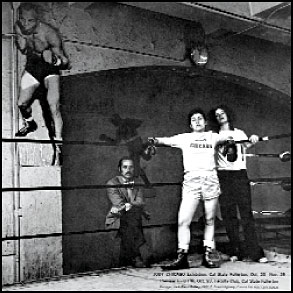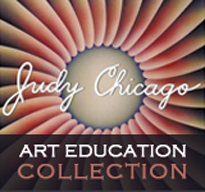![]() by Judy Chicago
by Judy Chicago

In my early days of professional practice, I encountered considerable gender discrimination, notably in being told repeatedly that “one couldn’t be a woman and an artist too.” Because I was brought up in a political household in which there was a belief in equal rights for women, I had an awareness that what I was up against was plain old sexism. But whenever I tried to discuss this, I was admonished with the question: “What are you, some kind of suffragette?” as if this were a disease.
As a result, it took me almost a decade to begin to learn about women’s history, which I turned to in a desperate effort to discover if any women before me had encountered obstacles similar to what I was facing. Along the way, I learned that many women before me had not only had the same experiences but had written and theorized about them, creating a body of knowledge that empowered and inspired me. It is this largely unknown information that is embodied in The Dinner Party. To view the entire Essay, download the PDF for Why Study Feminism? by Judy Chicago by clicking on the button below.
Back to Encounter 4 | Feminism | Go to Encounter 5
Encounter 1 | 2 | 3 | 4 | Feminism | 5 | 6 | 7 | 8 | 9 | 10 | 11 | 12 | 13 | 14

